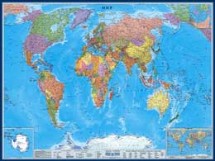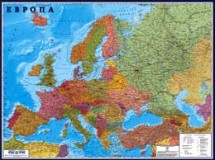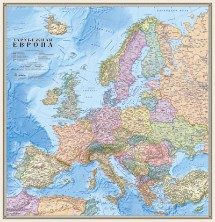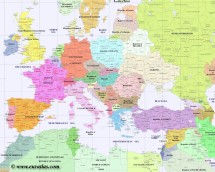New Europe From Spain To Alaska
 Eastern Europe Needs a Unified West Ismail Kadare, Albanias greatest living writer, defected from his native country in 1990. He now lives in France, but often travels to Albania. Kadare is the author of The General of the Dead Army, Three-Arched Bridge, The Pyramid, The Concert, Broken April, and other books. His works have been translated in more than thirty languages. Recently, Kadare spent a month as a writer in residence at Bard College, New York, where Voice of America's (NER:New Europe Review) Keida Kostreci interviewed him. NER: Mr. Kadare, in your works, you often refer to history. How important is history in shaping a writers conscience, and his work? Why are writers and readers so fascinated with history? Kadare: This stems from literatures very tradition. Literature denotes storytelling and that is how it started. It means telling things that have happened. Literature has, by its very nature, a historic dimension. In a sense, literature is in itself history, for even when you talk about something that happened the day before, it is somehow history, because that day is already over. This is not surprising. Ancient literature was more than historic. It was mythological, which is deeper and more distant than history. A person, whether writing or reading, needs some degree of remoteness from particular events. NER: In the Balkans, but also in other parts of the world, ethnic or religious identity has often become a source of bloody conflict. Do you believe the day will come when ethnic and religious identities will not generate such conflicts and that such divisions will no longer exist? Kadare: I believe that time will come. However, it will be a very slow, gradual process. There are many factors that will contribute to this process. In order to live in a democratic, emancipated, liberal and human manner, you do not have to renounce your own national identity. It is impossible to have one nation alone in the world it would not be acceptable by humanity. Likewise, you cannot have a single language and a single culture our planet would not tolerate it.  The world is arranged in a somewhat balanced way, where different cultures, peoples, and languages coexist and interact in a human and harmonious manner. The elimination of differences among various ethnic groups, ostensibly aimed at improving understanding among us, is not the answer. National identities cannot be extinguished and any attempt to do so would backfire. The world would not be able to function if there was only one, huge ethnic group, because that would run against nature itself. Therefore, we should not strive for a homogenous world. It would not only be naive but also malicious to seek the elimination of national identities in the name of modernity. An attempt to move in that direction would lead to another catastrophic situation by giving rise to demands to create hundreds of new artificial identities. NER: It seems that in Central and Eastern European countries, where fifteen years ago Communist dictatorships were toppled, historic memory is being lost or ignored. Some young writers even view the Communist period with a certain cynicism. What is your opinion? Kadare: I am afraid that we are dealing here with a degree of snobbism. Obviously, a nation, especially the younger generation, cannot live in the past. But on the other hand, it is not normal to forget the past. Some see the tendency to forget the past as a sign of modernity. Well, it is not! No one can ever forget what has happened to him or her in the past, less so an entire people. I believe that people who conveniently pretend to have forgotten the past so they can portray themselves as forward looking also encourage such a tendency. You cannot expect a normal future if your past is blurry and you do not know where you are coming from. Human nature and life in general, has three dimensions the present, the past and the future, and this will continue forever.  NER: Mr. Kadare, the so-called conflict between Islam and Christianity has become a subject of heated debate in many societies. Do you believe these religions are really irreconcilable, or have the events of the past few years intensified the contradictions between them? Kadare: A massive clash between members of these two great religions, which have lived alongside each other for thousands of years, is unimaginable. Certainly there are evil forces that are trying to manipulate and would indeed benefit from this seemingly religious conflict. But I think, and this is not only my opinion, that the war on terror ultimately has nothing to do with religion. Terrorism has existed all along in the most varied forms: fascist terrorism, communist terrorism, cross-border terrorism, and religious terrorism. The latter is only one of the many forms of terrorism. Religion-inspired terrorism emerged in the last twenty years. It is a problem not only between different religions but also within particular religions, whether its Islam or Christianity. The conflict between the Protestants and the Catholics in Ireland is well known. Recently, terrorism has assumed a harsher form and now there are those who want to present it as a conflict between two worlds. But in fact it is not a conflict between two worlds. It is a conflict between terror, a narrow but very dangerous, concentrated, aggressive and criminal world, and the rest of the humanity, regardless of religious beliefs. Take Iraq for example. What is happening there? At first sight, it may look as if terrorism is fighting against the U.S.-led coalition. In reality, terrorists are fighting against the Iraqi people. Most of those who are being killed are Iraqis. Another example is Algeria. For years, the Algerians have been fighting against terrorist groups that have terrorized them for a long time. This is a confusing situation that generates a lot of speculation. Obviously, the Muslim world will suffer a lot until the situation is clarified. I believe, however, that the Muslims will be able to sort things out. Progress has been made in some cases, but a clear, decisive victory has eluded them. As a result, some people see the struggle against terrorism as a clash between Christianity and Islam. NER: Intellectuals in Central and Eastern European countries appear to be faced with serious challenges. Their economic situation is precarious, and their clout in the public discourse has declined. Why do you think this is happening?  Kadare: Unfortunately, in those countries there is too much rudeness and ignorance. In such an environment, the intellectuals are not very outspoken—not out of fear but out of indignation caused by such rudeness. A radical discussion is not normal. This is one reason. Real intellectual debates can take place only in a normal environment. NER: With more and more East European countries joining or aspiring to join the European Union, the Balkans remains the only black hole in the continent. How much have nationalism and the psychology of the Balkan people contributed to this situation? Kadare: I do not share this skeptic and negative opinion of the Balkans. In Europe, this stereotype has existed for almost a century. I think this is an inaccurate, shallow and frivolous view, which embodies a hidden colonialist mentality. The Balkans is just a region of the world, with positive and negative aspects. Other regions of the world, particularly those in Europe, do not have much more to boast of than the Balkans. As we know, other regions and countries have seen horrors that people will remember for thousands of years. Thus the Balkans should not be blamed more than it deserves in the European history. Unfortunately, the Balkan peoples are too vocal in expressing their negativity. As they become equally vocal in expressing their good values, a new era for the Balkans will begin. These are not merely beautiful phrases. I know Balkan peoples very well. They truly have in them a noble side that so far has unfortunately been overshadowed by negativity and fits of craziness that gets into them from time to time. Nevertheless, the element of nobleness is there, waiting to reappear in the future. It may come late, but it will surely unveil itself. NER: From your observations, as an intellectual and writer living partly in France, what do you think are the feelings of French people towards the United States? Is their so-called anti-Americanism real? Kadare: Unfortunately, yes. I would not have been so quick to admit this here in this interview had I not likewise been vocal about it in France, because it would be unfair for me to criticize France, while in the Unites States. On more than one occasion, when asked by major French media outlets, I have very clearly said that unfortunately I disagree with what France is doing. France is doing something that goes against itself. As a writer, I have many more connections with France than with the United States. I can even say that I have close links with France and few with the United States. I spend part of my time in France. Normally, I would have defended France, but as I have openly said in the French press, France is making a big mistake for condoning this anti- American epidemic. This is illogical, unethical and runs against Frances own interests. Between France and the United Stated there are no deep and serious divisions. The current divisions are shallow and unfortunately based on passions.  Yet it should be made clear that in France there is a very solid group of authors, intellectuals and philosophers that are against this. They are speaking up openly in the media and this reflects a positive aspect of the French public opinion. While most of it has succumbed to the anti-American frenzy, it still accepts and listens with respect to this very strong group of intellectuals, philosophers, authors, and writers that is against it. NER: While most of the Central and Eastern European countries aspire for EU membership, they have in fact sided with the United States since before the intervention in Iraq. How do you explain their position? Kadare: The interest of these countries has always been with Europe, yet they supported the Unites States. First, this reflects political honesty and integrity. Secondly, it is proof of great wisdom. The Eastern Europeans demonstrated high moral principles, because regardless of their common interest with Europe, and they are waiting for Europes gate to open for them; they adopted a very principled position. There is of course, another explanation. These countries, including Albania, were fed up with anti-American propaganda during Communism. We know better than anyone that classic anti-Americanism is pure Stalinism. Stalinism existed for decades and anti-Americanism was its main feeding ground. Therefore for us, hearing those same slogans repeated in Western Europe is like a nightmare. Under Communism, the radio and the press preached anti-Americanism all day and that was so dreadful. Now in democracy, in the middle of Paris, I still hear slogans that are so similar to what we heard and experienced during that period and in that endless political misery. It seems, I think that past experience has opened these peoples' eyes, has made them more sober. These people look at the West as a unified world, which should not be divided. In their vision, among Western countries there may be contradictions but they can never be divided. It is a much healthier and smarter vision than any other one. That vision is also among those few things we Albanians, along with other peoples that emerged from the communist empire, can be proud of. *Eastern Europe Needs a Unified West Publication of United States Board of Broadcasting Governors and the Voice of America Labels: Armageddon, Bible Prophecy, Bush Brotherhood of Death  Stumble It! Stumble It! |















































Comments on "New Europe From Spain To Alaska"
post a comment